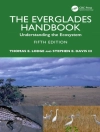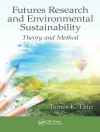Circa l’autore
Giuseppe Scandurra is Associate Professor in Economic Statistics at the Department of Business and Quantitative Studies of the University of Naples “Parthenope”. He h...
Circa l’autore
Giuseppe Scandurra is Associate Professor in Economic Statistics at the Department of Business and Quantitative Studies of the University of Naples “Parthenope”. He holds a B.S in International Economics and Ph.D. in Spatial Statistics from the same university.
Main research topics are related to energy policies and energy economics. He has published several papers in international refereed academic journals and book chapters in edited volumes; moreover, he has presented papers in several international conferences and workshops.
He is member of the Editorial Board of the International Journal of Economics and Finance and of the International Journal of Applied Statistics and Econometrics. He is also referee for several international academic journals in the area of energy economics, energy policies and applied statistics. He was member of the Advisory Board for the International Conference on Energy Economics and organized by Nevsehir University (Turkey).He also participates as a member in research projects and studies for national and international organizations.
Antonio Angelo Romano is Professor of Economic Statistics at the University of Naples “Parthenope”. After graduating in engineering, he continued with the free profession. Few years later he began his academic career. Currently he holds courses in data mining and economic statistics and he has also taught master and higher education schools.
In the first phase of his research he has focused on data quality and production, achieving significant results. Over the last years the research has moved on renewable energy and the impact of policies supporting this sector.
He is author of published in international academic journals. He has published several papers in international conferences and journals, and coordinated and/or participated in several research projects.
Alfonso Carfora is an official in the Economics and Statistics Research Officer of the Italian Revenue Agency. He was Research Fellow at the Department of Business and Quantitative Studies of the University of Naples “Parthenope”. He holds a B.S in International Economics, a Ph.D. in Spatial Statistics and a master degree in “Applied Econometrics”. Several papers published in international refereed journals or presented in international conferences related to: analysis of binary time series, business cycles; forecasting; tax evasion and compliance, taxpayers’ behavior, income distribution.
Monica Ronghi is a Research Fellow at the Department of Business and Quantitative Studies of the University of Naples “Parthenope”. She holds a B.S in International Economics and a Ph.D. in Statistics and quality of economic data with a thesis titled ‘Forecasting and simulation models. Application areas and potential synergies’ that investigated possible synergies between econometric models and System Dynamics simulation model. Fields of Interest: Energy, Environmental Economics and Policy, Climate Change and Renewable Energy.












